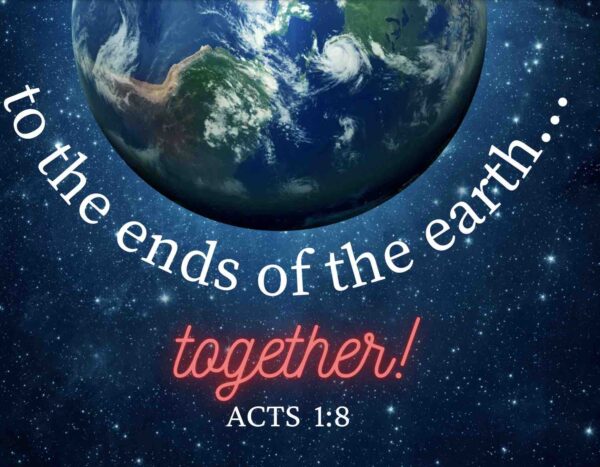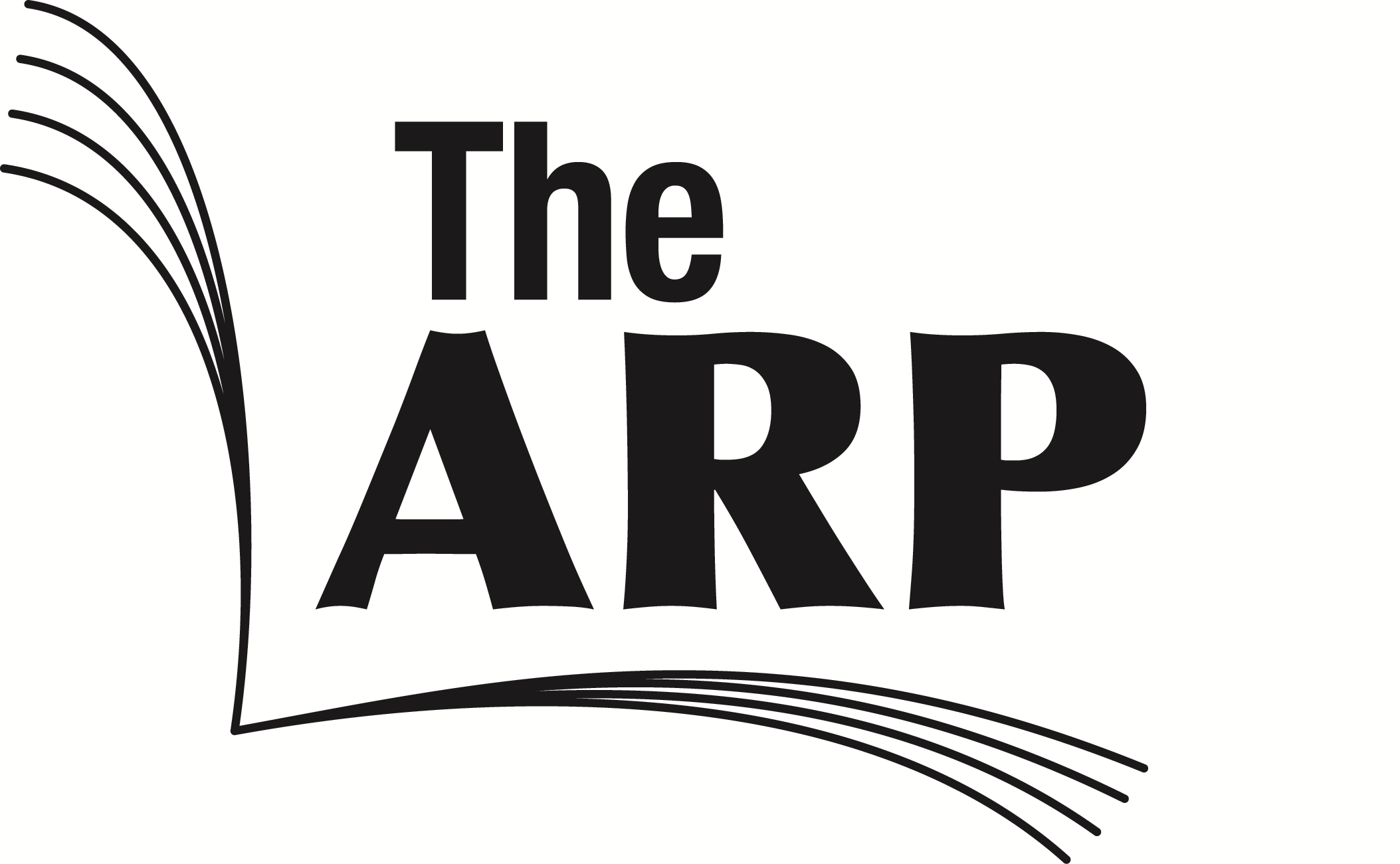By: Alan Broyles, Moderator

This is the theme of Synod this year, and it comes from a need to focus on the efforts of our denomination in several key aspects of church work.
“And Jesus came and said to them, ‘All authority in heaven and on earth has been given to me. Go therefore and make disciples of all nations, baptizing them in the name of the Father and of the Son and of the Holy Spirit, teaching them to observe all that I have commanded you. And behold, I am with you always, even to the end of the age’” (Matthew 28:18-19).
“You will receive power when the Holy Spirit has come upon you, and you will be my witnesses in Jerusalem and in all Judea and Samaria, and to the ends of the earth” (Acts 1:8).
These are the people who have the primary responsibility for implementing the various denominational programs that the Synod has mandated. Over time the form or composition of these various agencies will change, but each one exists to address a specific area of need or ministry discipline. None of these agencies is more or less important that any of the others – their scope of work and sphere of responsibility may differ greatly, but each one contributes to the overall mission of the ARP Church AND to the spread of the Kingdom of Jesus Christ. In other words, even though Erskine or World Witness or ONA reach thousands of people a year, they are no more important to the Lord’s work than the Dunlap Orphanage Foundation. And if you doubt this, let me remind you of the parable Jesus told His disciple in Matthew 18:12-14. “If a man has a hundred sheep, and one of them goes astray, does he not leave the ninety-nine and go to the mountains to seek the one that is straying? And if he should find it, assuredly, I say to you, he rejoices more over that sheep than over the ninety-nine that did not go astray. Even so it is not the will of your Father who is in heaven that one of these little ones should perish.”
So don’t think the impact is measured ONLY by the number of church members you have, or by how much money your church spends on missions, or how many of this or that your church or organization has or does or spends – the impact is how what you are doing affects others, and are you being obedient to God in what you do and where you do it.
So there we have it – we are to go make disciples – to be witnesses for Christ in Jerusalem – in our hometown and community. This is the primary function of the local church. In Judea – throughout our state and even our nation this is what ONA does by planting churches all across our country. Next Jesus said to go to Samaria – why would He tell the disciples to go to Samaria, which is the LAST place any self-respecting Jew would go? Well, I think that is exactly the point, wherever your Samaria is, the place that is at the bottom of your list for a mission destination, could be Africa, Central America, or my least favorite place New York City which is where we are to go next. And once we get rid of the “I ain’t going there” attitude, then we are free to go to the ends of the earth. In other words, there is no place we can go that we are excused from our duty to be a disciple and witness for Jesus – nowhere!
WHEREVER WE ARE – whether we GO intentionally or we are just going about the business of living life day-to-day – we are to be His witness.
I grew up in a little Baptist church about 30 miles from here. During most of those years, the minister there was Rev. Thomas Ervin, and as I recall about one Sunday a month he would preach on the Great Commission. And at the end of each of those sermons, he would always ask the question: “WHAT PART OF ‘GO’ DO YOU NOT UNDERSTAND?
So this is WHAT Jesus commanded us to do just before He left earth to return to heaven: Teach, baptize, disciple, feed, clothe, welcome strangers, visit those in prison and hospitals – all these things paint a picture of Christian faith in action. In James 2 the apostle says that Faith that does not do these things is DEAD!
“What good is it, my brothers, if someone says he has faith but does not have works? Can that faith save him? If a brother or sister is poorly clothed and lacking in daily food, and one of you says to them, “Go in peace, be warmed and filled,” without giving them the things needed for the body, what good is that? So also faith by itself, if it does not have works, is dead” (James 2:14-17).
Matthew Henry, a Welsh preacher in the 1700s,“The LORD so variously orders and disposes of the circumstances of his people in this world, that while some are in a condition to give relief, others are in need of it. Works of charity and benefit, according to our ability, are necessary to salvation and there will be more stress laid upon them in the judgment on that great day than is commonly imagined. These must be the proofs of our love, and of our professed subjection to the gospel of Christ.”
My challenge to you is this: commit your church to a two-year effort to be a partner (or advocate) for one of the ministries that are part of the ARP denomination: Erskine College and Seminary, World Witness, Outreach North America, Bonclarken, Brice-Sanders Foundation (Camp JOY), Dunlap Orphanage Foundation, the ARP Women Ministries, or ARP Central Services. How you may choose to do this is entirely up to you. You might want to take a look at the GO2 Advocate program that ONA & World Witness recently implemented to get some ideas, but my intent here is to challenge you and your church to get to a higher level in your service to the Kingdom and to offer several choices as to how you might accomplish that goal. As an example, a particular church might consider sending a group to help at a Camp Joy session, or perhaps another may send volunteers to put on a VBS session at an ONA church plant, or another may choose to send volunteers here to Bonclarken for the annual work-week, or even a work-day. Erskine College and Seminary have a number of efforts going that could greatly benefit from having churches as partners or advocates.
If this idea of being an advocate for one of our ARP agencies is a little intimidating, there are other ways get involved in serving – to sort of ease into the waters: you could commit to ringing the Salvation Army bell at Walmart this Christmas, or volunteering at the local soup kitchen, or the crisis pregnancy center. All these are good ways to get out of our ”comfort zone” and into the battle. Our church in Rock Hill is planning to send a group of teenagers to Rwanda in Africa for a week this summer to work with Erskine’s Global Diploma program. I am particularly impressed with a few of these young people because they do not seem to be intimidated in the least at the prospect of flying halfway around the world to spend a week in an environment that they will not be able to comprehend for weeks after they return. But they are willing– even eager– to go.
The idea here is to go beyond what is “comfortable” and as most of you know, until we get uncomfortable with our daily routine nothing is going to change. I do not intend to insult anyone here, but for many of us, we are satisfied to do the bare minimum: we give a few dollars to the Denominational Ministry Fund at Easter and Thanksgiving, and maybe attend a session at our churches Missions Festival, but doing much more than that is really pushing it. Getting out of our “comfort zone” is essential to moving from passive spectators to active participants in the work of the Kingdom. For some of us, TO THE ENDS OF THE EARTH means going across the street to share the Good News with a neighbor; for others, it may mean flying 10,000 miles to a country whose name you can’t even pronounce to share the Good News. Let this Synod meeting be the launching point for you and your church in getting out of your “comfort zone” and doing something meaningful for Christ and His kingdom. And then you will have a good answer when someone asks you, “What part of GO do you not understand.”
